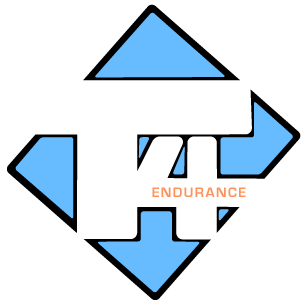Steps to Optimum Performance through Nutrition: Anti-inflammatory Foods

By Nathan Kark, CPT, USAT Level 1
Co-founder/Coach, T4 Endurance
So you train hard and desire to set yourself up for optimal performance. How do you take your multisport quest to the next level? The answer: bring your nutrition to the next level.
Many athletes think that they can eat whatever they want because of their high training volume. With some long-distance triathletes requiring as many as five times the average humans caloric requirement, its not hard to see why triathletes think they can fire-up the food Hoover and go to town whenever they desire. Some of us may be able to eat Big Macs all the time and still look fit. However, understanding what we eat has larger implications than just physical appearances alone.
Establishing the proper nutrition guidelines for each athlete is a highly exclusive process that is dependent upon an entirely unique set of variables. However, one important key to achieve optimal performance through nutrition is eating foods that are anti-inflammatory in nature. Inflammation can cause a wide variety of problems in your body including excess body fat, swelling, and pain in your joints. Some scientists have even gone far enough to say that inflammation is the main contributing factor to the majority of health problems today. From a multisport athlete's perspective, without eating anti-inflammatory foods, you are ultimatly setting yourself up for discomfort, poor recovery following hard efforts, and several other repercussions that will impede achieving your desired successes.
Its important to know that some of the most inflammatory foods are actually the very same products that are marketed to us as recovery food, like recovery bars and shakes. Why are they inflammatory in nature? Because they are chocked full of refined products that the body does not utilize like refined sugars, oils, and other artificial ingredient. All refined foods are perfect examples of foods that you always want to stay away from, especially after training when your body is already inflamed from the loads that you have applied to it.
So what are foods that you want to consume to keep inflammation to a minimum? Here are some great ones:
Vegetables Here are some of the best choices that are known for their anti-inflammatory properties: Bell Peppers, Bok Choy, Broccoli, Broccoli Sprouts, Brussels Sprouts, Cabbage, Cauliflower, Chard Collards, Fennel Bulb, Garlic, Green Beans, Green Onions/Spring Onions, Kale Leeks, Olives, Spinach, Sweet potatoes, and Turnip Greens.
Fruits include some of the best anti-inflammatory fruits are - Cherries, Apples, Avocados, Black Currants, Blueberries, Fresh Pineapple, Guavas, Kiwifruit, Kumquats, Lemons, Limes, Mulberries, Oranges, Papaya, Raspberries, Rhubarb, Strawberries, and Tomatoes.
Nuts and Seeds Almonds, Flaxseed/Linseed, Hazelnuts, Sunflower Seeds, and Walnuts.
If you are not already consistently focusing on eliminating inflammation-causing processed foods and substituting them for whole food sources, T4 Endurance has a couple of super easy suggestions to kick-start the process:
1.Start with whole food snacks The food sources mentioned above (vegetables, fruits, and nuts) are all perfectly portable and serve as satisfying munchies anytime. They also provide vital nutrients needed by your body and help regulate your blood sugar to reduce food cravings. As a bare minimum, make sure you eat a combination of fruit, vegetables, and nuts after a workout. The protein from the nuts will help repair damaged tissues while the natural sugars from the fruits and vegetables will help top off your muscles glycogen stores, helping you feel better and train stronger the next day.
2. Slowly take processed food out of your meals This is significantly more challenging than whole-food snacking but it will absolutely provide you with noticeable results. In general, eating a whole food diet means cooking at home rather than going out. Though this is not always practical, there are still ways that you can make food beneficial while on the run. Whenever you cannot focus on whole-food at home, ask yourself how a particular food can help you or at least be aware of the purpose of the food you are going to be eating.
3.Primary and secondary foods - A while ago T4 Endurance's Health Coach, Jason Hartzell, published an article on our Facebook page that talks about primary and secondary foods. As a general rule, food is nutrition but it also plays a huge role in how we interact with others. As a result, it is critical that you have the ability let yourself enjoy foods with others to maintain healthy relationships with friends and loved ones. This can be done by either inviting others to try the new foods you are exploring or by jumping off your whole foods horse every once and a while. Trust me, jumping back on the horse is a ton easier if you decide to jump off.


